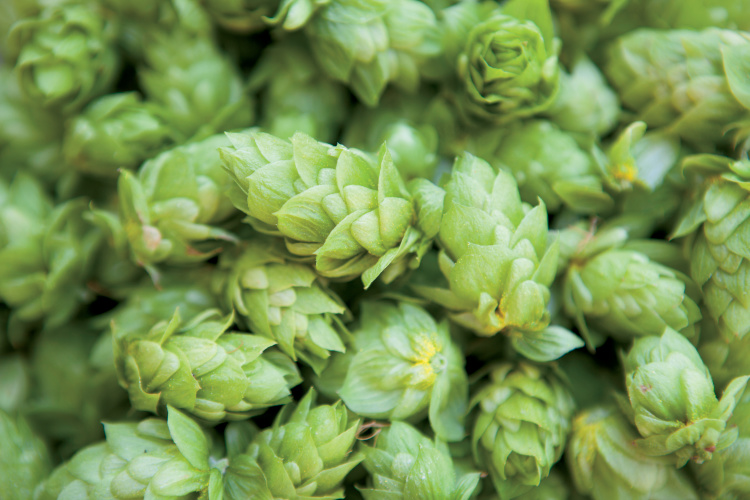Home > Farm > Crops & Livestock > How Local Hop Growers Are Boosting Nebraska’s Craft Beer Industry
How Local Hop Growers Are Boosting Nebraska’s Craft Beer Industry

When third-generation Plattsmouth farmer Bruce Wiles and his wife, Annette, went looking for alternatives to diversify their row crops, friends Paul and Kim Kavulak suggested they look into growing hops. It was 2014 and the Kavulaks, who own Nebraska Brewing Company, knew the state’s craft brewing market was gaining momentum.
However, the breweries were sourcing hops out of state, mainly from the Pacific Northwest. The University of Nebraska-Lincoln was beginning to field calls from farmers and hobbyists asking questions about growing hops.
“We asked if the University would partner with us, because it would be another opportunity for people who wanted to get into agriculture, and it doesn’t require a large number of acres,” Annette Wiles says. “And with the growing need to locally source hops, and the number of craft brewers on the rise – based on a market analysis we did – it just seemed like something that would work.” And it is working. Wiles now serves on the Nebraska Craft Brewery Board, and her new business, Nebraska Hop Yards, is the largest producer of hops in the state. It grows and sells hops to Midwest Hop Producers, which dries and brokers to various craft brewers.
In 2014, craft brewing across Nebraska produced 33,939 barrels, adding a direct economic impact of $424 million statewide. There are 32 identified commercial craft breweries in the state sourcing most of their hops out of Nebraska. As demand for hops grows, so do opportunities for Nebraska growers.
“Many years ago, when wineries were popping up across the state, there were a lot of people interested in establishing their own vineyards and growing grapes,” says Casey Foster, ag promotion coordinator with the Nebraska Department of Agriculture. “The interest then is similar to what we’re seeing in hops now with the emergence of breweries.”
Working in Partnership
Researchers at the University of Nebraska are working to help the Wiles family and other producers meet the growing demand for hops while diversifying and strengthening their own farms. With its Nebraska Hops Project, researchers are studying hops cultivar production methods specific to Nebraska’s soil conditions, topography and climate, as well as the unique growing and harvesting equipment required. The plant is what gives beer its unique flavor, affecting the bitterness and the foam head. It’s a crop unto itself with unique challenges and strengths. Researchers are especially interested in the genetic makeup of some wild hops they’ve found growing along the Loup River, as well as in Plattsmouth and throughout Nebraska.
“It’s drought-, pest- and disease-resistant for the most part if it’s survived on its own,” Wiles says. “So we’re looking at those attributes and what a ‘Nebraska hop,’ a ‘Husker hop,’ might look like.”
The partnership between the University and Nebraska Hop Yards also drew the attention of the Nebraska Craft Brewers Guild, which then started working with the University on things like water testing and yeast production. In January 2017, the guild and the University joined the Midwest Hop Producers and Nebraska Hop Growers Association and held the state’s first grower and brewer conference and trade show at the Nebraska Innovation Campus.
“There’s a big push around local sourcing and really making things sustainable, so it’s truly a farm-to-table bar experience,” Wiles says. “It’s really about growing the state.”



